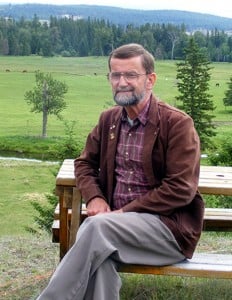Home »

Defunding the police is not the answer
 “Perceptions,” by Gerry Warner
“Perceptions,” by Gerry Warner
Defund the police?
Get serious!
Unless human nature was to change overnight and there was an angel sitting on every shoulder there will be a need for the police.
Unrepentant idealists may think differently, but they’re wrong and they can sing Kumbaya forever and it won’t change a damn thing. George Floyd will still be dead. Racism against blacks, indigenous and LGBT people will continue and justice may emerge eventually. But don’t hold your breath. That’s the way it is in this vale of tears and you might as well get used to it.
But wait. Some good may come out of this tragedy. Not by defunding every police force in the land, but by disarming them. It’s been done before. It’s still done in several countries and in light of the nearly nine minutes of police torture inflicted on George Floyd, a turning point may have been reached to prevent such a brutal tragedy from ever occurring again.
Time for a history lesson.
British police officers, “Bobbies” as they’re affectionately known, rarely carry guns. Firearms were done away with officially in 1936 and except for a few specially trained firearm units, guns are deemed unnecessary. The preference in Britain is that policing “should be by respect and consent rather than by the point of a gun,” according to a Wikipedia article on the subject.
Statistical evidence from 2017 shows the British approach working with London’s homicide rate standing at 1.6 per 100,000 people compared to 3.4 in New York, 24.1 in murder city Chicago and 3.1 in Toronto. Statistics can be manipulated of course, but clearly the British message is fewer guns; fewer deaths. Such an approach is far more realistic than simply eliminating police forces and waiting for the life-threatening chaos that would inevitably occur.
The other key issue is police training, which for RCMP recruits begins as young as 18 and consists of 26 weeks of basic training at a military depot in Regina, including 104 hours of firearms training. At 19 a recruit can be a paid officer on the street with peace officer status working under an experienced field coach.
After six months of additional training, a recruit becomes a full-fledged RCMP officer and can point a gun at you. It has been like this since 1885, but is this highly militaristic and gun-orientated training appropriate for conditions in 2020 when Mounties are often dealing with people under the influence of highly toxic opioids and other powerful drugs?
Does carrying a gun help police when they confront mental health cases, which are becoming more common all the time? Do recruits receive any cultural sensitivity training? Do they get trained how to de-escalate tense situations without pulling a gun or how to deal with homeless people, street people, runaways and others who are no longer part of mainstream society?
It’s a tough, thankless job being a cop and many skills are needed to do the job properly and not get dragged down by the chaos and anarchy police face daily and result in many police suicides. Despite this, I think it’s fair to say most cops do their job amazingly well all things considered. But some obviously don’t as we watched in horror as George Floyd gasped “I can’t breathe,” his neck pinned under the knee of a callous cop.
Or Chantel Moore, a 26-year-old Indigenous woman from New Brunswick shot dead two weeks ago by a city cop during a “wellness check.” Yes, she was wielding a knife, but surely the police can be trained to handle situations like this. If not, and with cries of “systemic racism” echoing across the land, policing as we’ve known it may be coming to a speedy end.
That may please some, but I think it would be a disaster if every police officer was forced to give up his or her badge. Don’t you?
Gerry Warner is a retired journalist, who hasn’t always followed the straight and narrow but has never ran afoul of the police.







